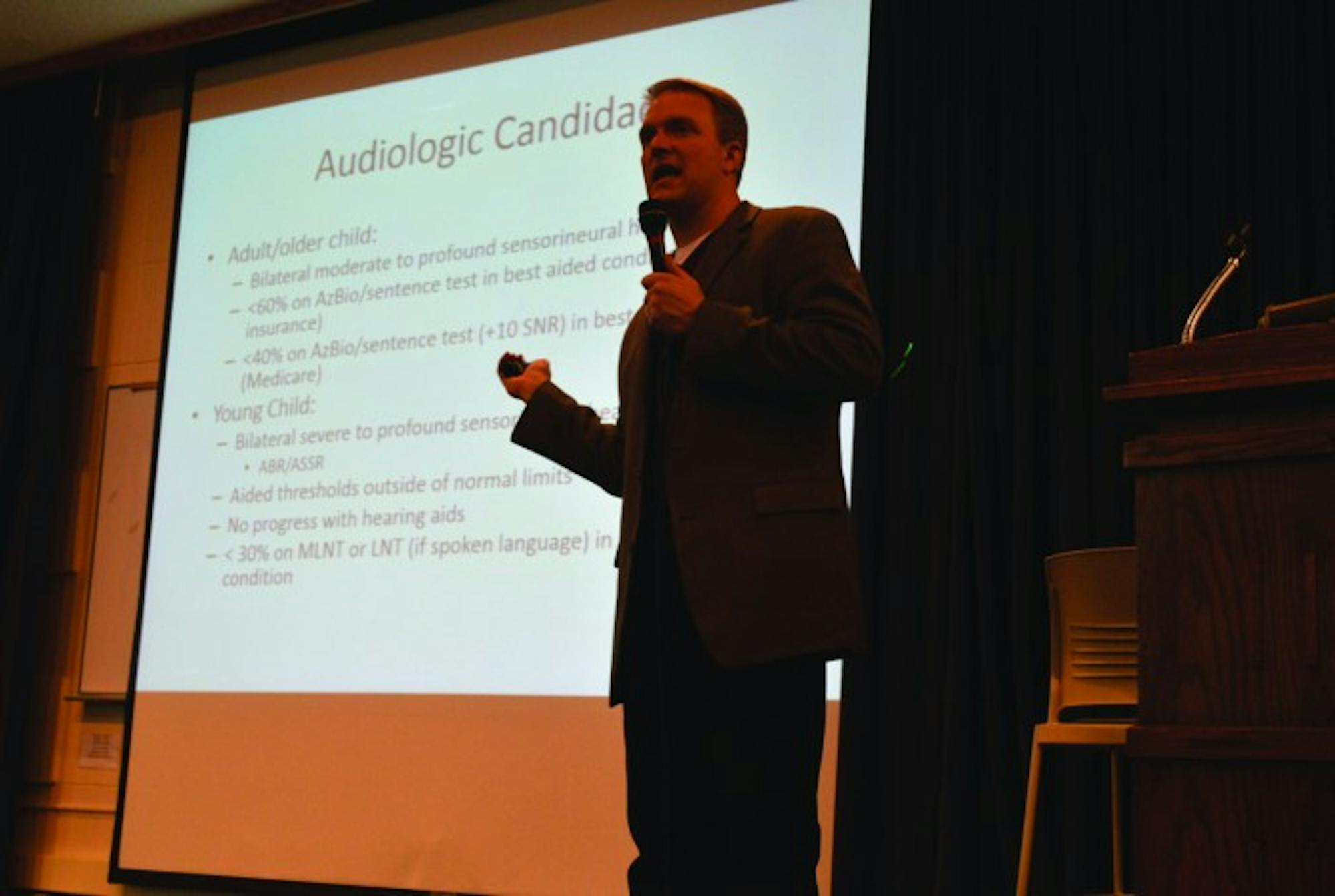
The communicative sciences and disorders department at Saint Mary's hosted a lecture on cochlear implants by board certified audiologist, Jason P. Wigand. Wigand is an assistant professor and clinical director of the cochlear implant program at the University of South Carolina.
Wigand himself has a bilateral cochlear implant, an implant on each ear. His lecture, “From Candidacy to Implantation through Rehabilitation,” focused on his own personal experience with cochlear implants and the process of getting an implant.
Wigand said he was an ROTC student in college but failed a hearing test and was medically discharged. He said his doctors believe he had an inner ear attack in 1993.
“In the four to six years before I failed my hearing test my hearing was getting worse bit by bit,” Wigand said. Over the course of about four years his hearing got progressively worse, he said.
Wigand said he received his first implant at Yale University in 2005 after an audiologist at an ear, nose and throat (ENT) group in Connecticut suggested cochlear implants.
“I ended up looking for another pair of the best hearing aids because my hearing was going quickly. So I get the hearing aids ... and end up going for a new pair and the audiologist said, ‘Has anyone talked to you about cochlear implants?,’ I had heard about them, by this time it was 2004, but didn’t know a lot.”
Wigand received his undergraduate degree in management and worked for FedEx for 15 years when he found himself tired of the job. He said he learned about the field of audiology when he began a new career at Ohio State University.
“I had a great career … you just find yourself not wanting the next step. So I get an opportunity to go to Ohio as a regional manager. Basically I find myself in the same position … 78 hour weeks, I didn’t like it … So I started doing some testing as a subject at Ohio State with a researcher and after a couple months he was looking for a research assistant and I thought, ‘I want to do this, I really like this, I want to know more,’” Wigand said.
He said he then talked to professors at Ohio State and went back to school to become an audiologist.
Wigand said a cochlear implant is surgically placed on the round window of the inner ear, which is behind the eye. The implant bypasses the inner ear and goes directly to the nerve that sends the signal to the brain.
Wigand said that for an adult to qualify for a cochlear implant, the adult has to meet requirements medically, with speech intelligibility and have a moderate to severe or profound sensorineural hearing loss.
“In adults, the criterion has changed over the past 10 years, initially you had to be severe to profound hearing loss,” he said. “The conversation [of getting a cochlear implant] starts when they are not doing well with their hearing aids.”
Wigand said hearing loss is a unique problem for each patient.
“Just because I’m hearing impaired does not mean I can relate to every patient ... With hearing loss, it is completely individual,” he said.
More information about cochlear implants can be found on www.asha.org













